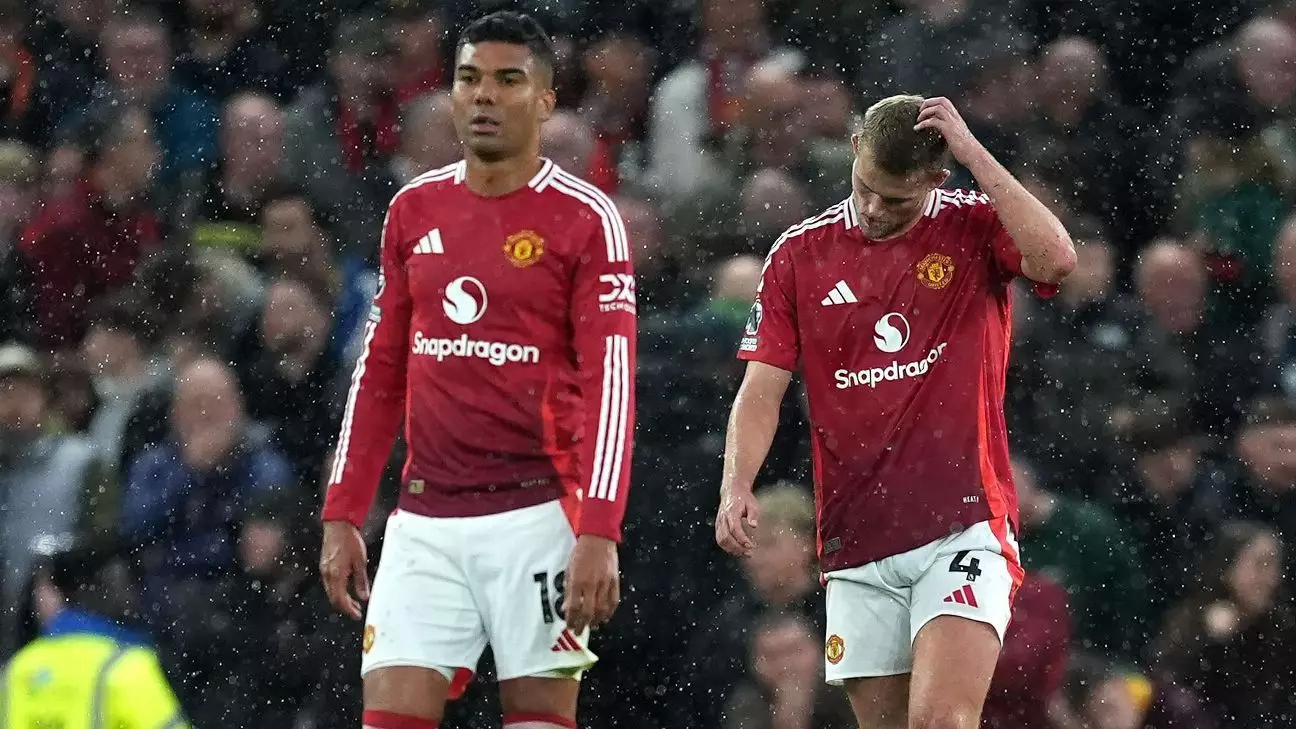This past Sunday, Manchester United faced an embarrassing 3-0 defeat to Tottenham Hotspur at Old Trafford, leaving fans and analysts alike questioning the commitment and tactical understanding of the players. Expectations had been set clear by manager Erik ten Hag in his programme notes, where he emphasized the necessity of giving “100%”. However, the players appeared to disregard this message entirely, delivering a performance that felt more like a lack of effort than a tactical failure. In a match where Ten Hag sought a strong reaction following an underwhelming draw against FC Twente, what unfolded was a display that was disheartening at best.
The early minutes of the match were indicative of the disaster that was to come. United succumbed to an initial goal by Brennan Johnson just three minutes in, signaling an uncomfortable reality for the home side. The insinuation that their lethargy resulted in being outplayed was made even clearer by the disorganization observed in their defensive structure, which was oddly reminiscent of previous dismal performances this season. The players seemed to wrestle against the very tenets of successful football, failing to win tackles and frequently conceding possession.
Upon reflection, the defeat against Tottenham served as a microcosm of a broader crisis embedded within the club. The players’ inability to follow the tactical outline set forth by Ten Hag stood stark in contrast to Tottenham’s structured approach. Spurs, under the leadership of Ange Postecoglou, displayed not just tactics but a palpable belief and aggression that was missing from United’s ranks. Tottenham’s performance revealed a substantial gap in motivation and execution. They were proactive, pouncing on weaknesses with a marked intensity, while United appeared detached, displaying an alarming lack of urgency.
The central issues became increasingly evident as the match unfolded. United’s players lost duels in critical areas of the pitch and failed to maintain defensive discipline, allowing Tottenham’s attackers to roam freely. It was clear that a lack of cohesion and communication characterized their performance. For instance, Marcus Rashford and Alejandro Garnacho allowed Micky van de Ven to recover possession without contest, an indictment of the players’ focus and attitude. Such errors truly showcase a culture that appears to be crumbling under the weight of expectation.
The moment that might have amplified the despair among United supporters came just before half-time when Bruno Fernandes received a straight red card. His reckless challenge on James Maddison not only exacerbated their problems but also served as a metaphorical symbol of the team’s collective mentality—desperate and unthinking. Following this incident, Kobbie Mainoo’s unfortunate injury added further salt to the wounds, depriving Ten Hag of crucial personnel. In a matter of minutes, what could have been salvaged became a lost cause.
Ten Hag’s attempt to revert to a defensive strategy by introducing Casemiro at halftime initiated a flicker of life within the team. Briefly, they appeared to gain some foothold, but the momentum was short-lived. The second half spiraled out of control, and two further goals from Spurs compounded the grim narrative they were embroiled in. United fans were served a grim reminder of their side’s vulnerability—set-piece situations. The sight of Dominic Solanke finding the net unmarked beneath the crossbar served to highlight the defensive fragility that has plagued the club for far too long.
With three wins in eight matches this season, the pressure on Erik ten Hag is palpable. Although there were some initial green shoots of improvement—evident in last season’s FA Cup triumph—the consistency required at a club of Manchester United’s stature continues to elude his team. The defeat to Tottenham not only underlines the tactical shortcomings but also raises critical questions about player motivation and the overall mental approach to high-stakes fixtures.
The outpouring of frustration from the fans during and after the match serves as a wake-up call for both the coaching staff and the club’s management. As Ten Hag attempts to navigate this turbulent period, maintaining morale and instilling a sense of unity within the squad is essential. Yet, the signs of erosion within the fanbase’s goodwill are distressed by performances like this.
As Manchester United gears up for tough upcoming fixtures against FC Porto and Aston Villa, the reality is crystal clear—failure to show improvement may result in dire consequences for the club’s management. The spotlight is firmly on Ten Hag, and while he asserts that he remains confident in his vision of rebuilding the squad, the ticking clock may soon outlast his patience as manager. It stands to reason: resolve must evolve into action, or the specter of uncertainty will loom large over his tenure.

Leave a Reply